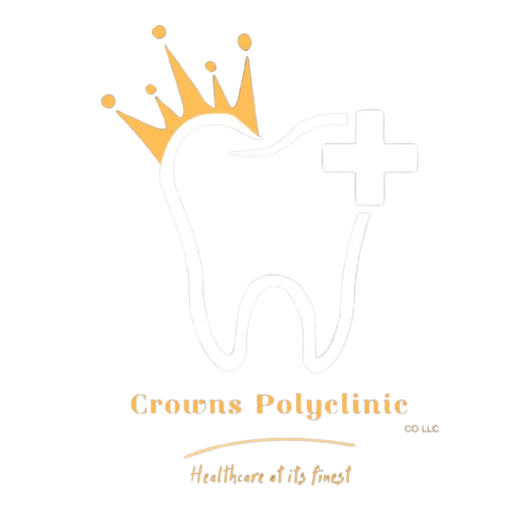Precautions for your Dental Crown
Repairing broken, decayed, or fragile teeth is commonly achieved through the use of dental crown, which are specialized caps designed to fit over damaged teeth, providing reliable protection against further harm. While dental crowns can effectively restore both the health and appearance of teeth, patients often have questions regarding the limitations associated with them.

1. Avoid Hard or Sticky Foods:
It is imperative to steer clear of hard or sticky foods following the placement of a crown. Despite their durability, dental crowns can still be vulnerable to damage from excessive force or pressure. Hard foods like nuts, popcorn, and ice, as well as sticky items such as candy or gum, can potentially crack or dislodge the crown. These foods should be avoided during the initial days after the procedure. Gradually reintroducing them into your diet is acceptable once the dental crown has had time to properly settle and bond with the tooth. However, caution must be exercised to avoid applying too much pressure or biting down forcefully on hard or sticky foods.
2. Maintain Good Oral Hygiene:
Practicing good oral hygiene is crucial post-crown placement. Regular brushing and flossing are necessary to prevent the buildup of plaque and bacteria around the crown, which could lead to gum disease or decay, ultimately compromising the integrity of the restoration. It’s essential to use a soft-bristled toothbrush and gentle brushing techniques around the crown to avoid damage. Flossing around the crown might be challenging, but utilizing special floss threaders can aid in effective cleaning.
3. Avoid Teeth Grinding or Clenching:
Dental crowns are susceptible to damage from teeth grinding or clenching, also known as bruxism. The excessive force exerted during these actions can cause the crown to crack or become dislodged, resulting in wear and tear on the natural teeth. Patients experiencing bruxism should discuss treatment options with their dentist, which may include wearing a night guard to protect both the teeth and dental restorations while sleeping. Additionally, stress management techniques or relaxation therapies might be recommended to alleviate teeth grinding and clenching.
4. Schedule Regular Dental Check-Ups:
Regular dental check-ups are essential for maintaining the health and longevity of dental crowns. Your dentist can monitor the condition of the crown and surrounding teeth, addressing any issues before they escalate. It’s advisable to schedule dental check-ups every six months or as recommended by your dentist. During these visits, professional cleanings can be performed to remove any plaque or tartar buildup around the crown.
5. Sensitivity after dental crown:
Some degree of sensitivity or discomfort following the placement of a dental crown is normal and typically subsides within a few days. However, if sensitivity persists or worsens, it’s important to consult your dentist.
6. Temporary Dental Crown Care:
If a temporary dental crown was fitted while awaiting the permanent one, precautions should be taken to avoid dislodging it. Similar to after receiving a permanent crown, sticky or hard foods should be avoided, and gentle brushing and flossing around the temporary crown are advised.
7. Dental Crown Work Timing:
Coordination with your dentist regarding the timing of other dental procedures, such as fillings or root canals, is crucial. It may be recommended to postpone such procedures until after the crown has been placed and allowed time to settle.
8. Emergency Care:
In the event of damage or dislodgment of the crown, seeking emergency dental care promptly is essential to prevent further complications.
In Conclusion, while dental crowns offer a durable and effective solution for dental restoration, it’s important to adhere to certain guidelines to ensure their longevity and maintain oral health. By avoiding hard or sticky foods, practicing good oral hygiene, addressing teeth grinding or clenching, scheduling regular dental check-ups, and seeking emergency care when necessary, patients can safeguard the integrity of their dental crowns and preserve their oral health. It is highly recommended to consult with your dentist regarding any concerns or questions about dental crowns or their maintenance. Visit one of the best dental clinics in Dubai today Crowns Polyclinic in Al Karama.



